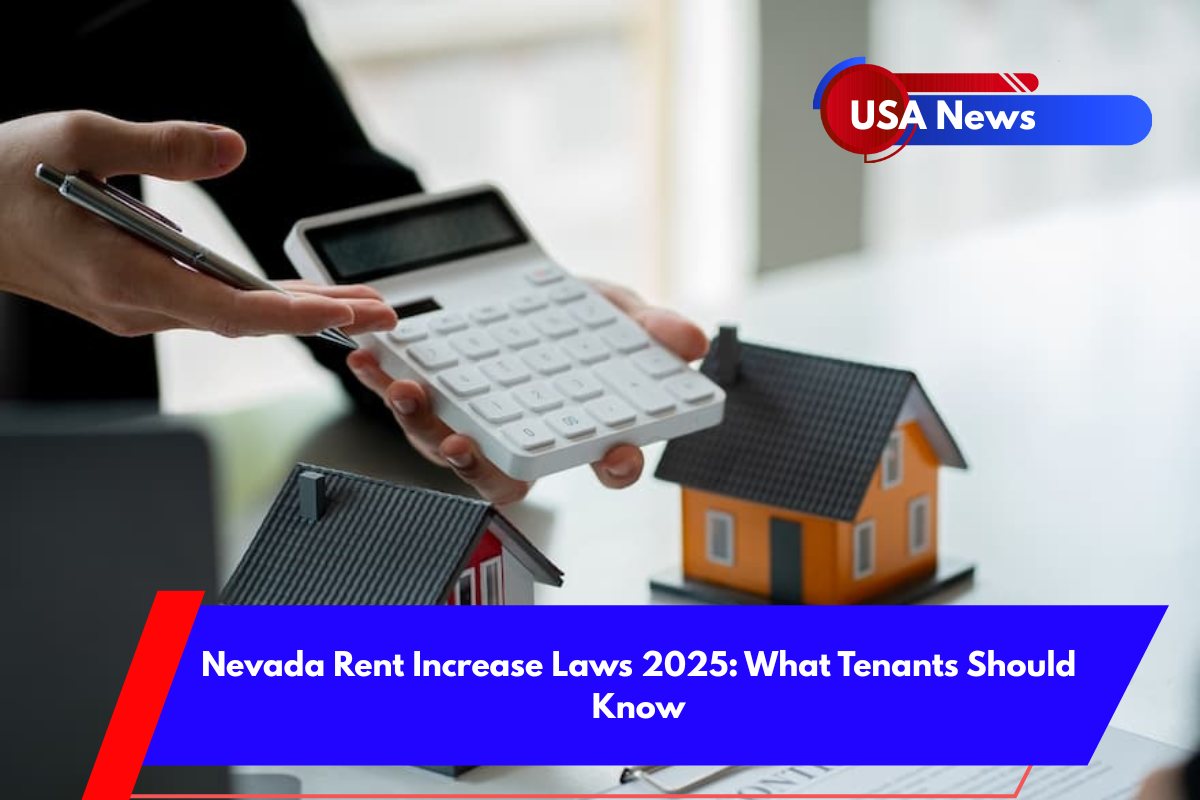In 2025, Nevada’s rental market continues to operate without statewide rent control, meaning landlords have significant flexibility in setting and increasing rent.
However, there are clear rules about notice requirements, rent increase protections, and tenant rights that tenants should understand. Here’s a breakdown of Nevada’s key rental rules and what tenants should do if they face a rent increase.
No Statewide Rent Control
Nevada does not have statewide rent control, which means that landlords can increase rent as they see fit, based on market conditions or their own discretion.
There is no cap on how much a landlord can raise rent, except in rare circumstances in certain cities with limited local ordinances. For example, some older units in places like North Las Vegas may have small rent control measures, but these are exceptions rather than the rule.
Notice Requirements for Rent Increases
If your landlord decides to raise the rent, they are required to give you written notice in advance. The notice period depends on the type of lease you have:
Month-to-month leases: Landlords must provide 60 days’ written notice before increasing the rent.
Leases under 1 month: Landlords need to give 30 days’ written notice.
Fixed-term leases (for example, 12-month leases): The notice period is typically 30 to 60 days, depending on what’s specified in the lease. If not stated in the lease, 30 days’ notice is common.
No Cap on Rent Increases
While landlords in Nevada have the freedom to raise rent without a legal cap, they must still follow the required notice periods. For tenants, this means that rent increases could occur at lease renewals or when a fixed-term lease ends, and there’s no limit to how much rent can go up. However, some local ordinances, like in North Las Vegas, may place limits on increases for older apartments.
Lease Term Protections
During the term of a fixed-term lease, landlords cannot raise the rent unless the lease agreement specifically allows it. Typically, rent increases occur only at lease renewal or expiration. This provides some stability for tenants with long-term leases.
Protections Against Retaliatory or Discriminatory Rent Increases
If a rent increase is retaliatory—such as happening shortly after a tenant files a complaint or requests repairs—it may be illegal. Similarly, discriminatory rent increases that target protected classes (like race, gender, or disability) are prohibited by fair housing laws. If you suspect that the rent increase is retaliatory or discriminatory, it may be worth challenging with legal assistance.
Are There Exceptions or Local Ordinances?
Rare Local Rules: Some areas, like North Las Vegas, have limited rent control laws that apply only to a small number of older apartment buildings. These exceptions are not common and do not reflect statewide policy.
Dillon Rule: Nevada law generally prevents local governments from enacting their own rent control measures without state approval. This means that most cities and counties cannot set stricter rent controls without the state’s consent.
Frequency of Rent Increases
There is no limit on how frequently landlords can raise rent in Nevada, as long as they follow the required notice periods. Landlords can raise rent as often as they like when leases are renewed, although frequent or steep rent increases might lead to tenant dissatisfaction and could affect tenant retention.
Protections for Tenants
Retaliation is Prohibited: Landlords cannot raise rent as a form of punishment for tenants who exercise their legal rights, such as filing complaints or asking for repairs.
Discrimination is Prohibited: Rent increases that target tenants based on protected characteristics (e.g., race, religion, disability) are illegal under federal fair housing laws.
Recent Legislative Activity
In recent years, there have been bills proposed in Nevada’s legislature aimed at introducing statewide rent caps (e.g., limiting rent increases to 5% per year after the first year). However, as of July 2025, none of these bills have passed into law. Tenants and landlords should continue to monitor legislative developments as rent control remains a hot topic in Nevada.
What to Do if You Receive a Rent Increase Notice
If you receive a notice of a rent increase, here’s what you should do:
Review Your Lease Terms: Check your lease to see if there are any clauses that allow for rent increases during the term of the lease.
Verify the Notice Period: Ensure that the notice complies with state law. If the notice doesn’t give enough time, you may be able to contest the increase.
Negotiate with Your Landlord: If the increase is unaffordable, consider negotiating with your landlord to find a more manageable solution.
Seek Legal Advice: If you believe the rent increase is illegal, retaliatory, or discriminatory, seek legal advice or assistance to challenge the increase.
Sources:
1. https://www.hemlane.com/resources/nevada-rent-control-laws/
2. https://www.turbotenant.com/rental-lease-agreement/nevada/laws/rent-control/
3. https://innago.com/nevada-landlord-tenant-laws/













